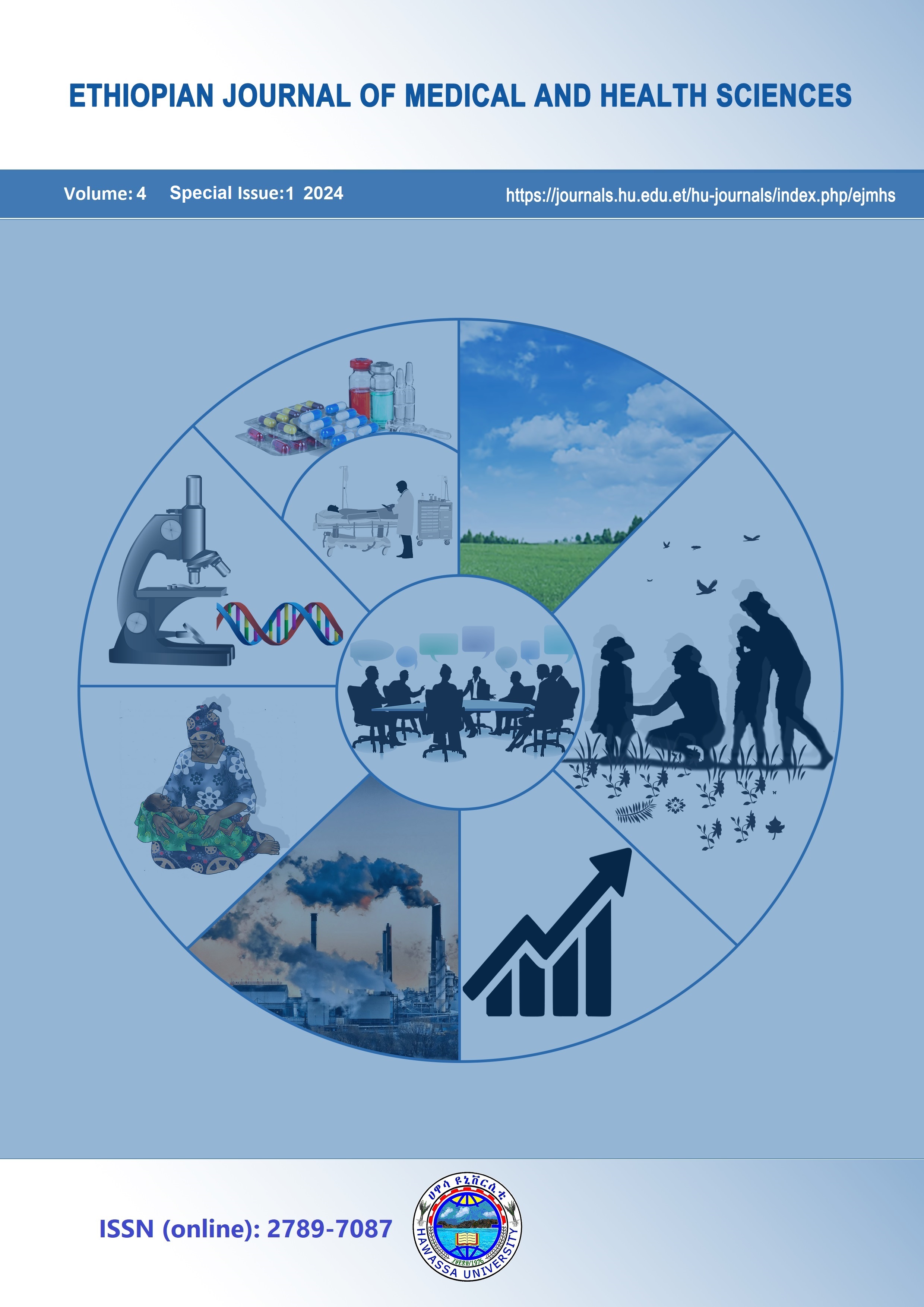Cascading Change: A New Paradigm for Creating Model Health Posts in Health Information Systems –Experience from Hawassa University’s Capacity Building and Mentorship Program
DOI:
https://doi.org/10.82127/01w5xy42Abstract
Background: Health Posts (HPs) in Ethiopia play a vital role in primary healthcare but face significant challenges in implementing the Community Health Information System (CHIS). Issues such as inadequate infrastructure, limited training, data quality concerns, and reliance on paper-based records hinder effective decision-making. Existing supervision and mentorship models require substantial resources due to the number of HPs and their accessibility constraints. With the Ministry of Health (MOH) revising model woreda verification criteria to include Health Information System (HIS) performance at the HP level, stronger interventions are needed in key areas like structure, data quality, and data utilization. To address these challenges, this study introduces an extended innovative approach adapted; Focus on single facility, Gap analysis based on standard, Develop tailored action plan, Execute-tailored intervention and evaluate, Cascade the change, and Reward and recognition (FGD-ECR) to transform HPs into Information Revolution (IR) model facilities for improved healthcare data management and service delivery.
Methods: A structured before-and-after study was carried out from September 2023 to February 26, 2024, to enhance Health Information System (HIS) performance across four purposively selected from Hawassa University Capacity building and Mentorship Program (CBMP) targeted woredas in Southern Ethiopia. Guided by the FGD-ECR framework, the initiative was rolled out under the broader CBMP. In each selected woreda, one health center was chosen to participate in the intervention: Shebedino, Hawela, and Melga from the Sidama Region, and Misrak Badewacho from the Central Ethiopia Region. Through targeted action planning and a systematic execution of the FGD-ECR model, the program aimed to identify performance gaps, empower teams through mentorship, and implement reward systems to foster continuous improvement in HIS functionality. In the first phase, 20 health posts across the four Health centers underwent baseline assessments using standardized Information Revolution (IR) tools, tailored action planning, and targeted interventions. The improvements observed were then cascaded to 59 additional health posts, guided by trained Health Extension Workers (HEWs), and Health Extension Program (HEP) coordinators from each Health Center serving as mentors. Data were entered into Epi-Info version 7 and exported to STATA version 16 for analysis. To assess the changes, paired t-tests evaluated pre- and post-intervention changes in HIS performance, while independent t-tests compared verification of the HEP assessment made by CBMP mentors.
Results: Significant improvements were observed in both the first and second phases across HP structure, data quality, and data use (p<0.05). For Phase 1 HPs, HP structure improved from a mean score of 16.6 to 26.8, data quality from 14.3 to 27.4, data use from 17.7 to 35, and the overall score from 48.2 to 89.3. For Phase 2 HPs, HP structure improved from a mean score of 14.1 to 24.4, data quality from 12.7 to 26.3, data use from 16.9 to 33.5, and the overall score from 43.6 to 84.2. Comparison of CBMP mentors' and HEPs' assessments showed no significant differences for most indicators (p>0.05), indicating the effectiveness of the HEP-led mentorship.
Conclusion: This extended FGD-ECR approach, leveraging HEP coordinators for mentorship, proves to be a more efficient strategy for developing IR model HPs compared to traditional methods. Large-scale implementation with broader stakeholder collaboration is recommended, alongside efforts to address implementation challenges.

